Explore the
BigCommerce platform
Get a demo of our platform to see if we’re the right fit for your business.
Not ready for a demo? Start a free trial
2025 BigSummit APAC Session Recaps: The Future of Commerce is Already Here

Written by
Annie Laukaitis24/10/2025


2025 BigSummit APAC Session Recaps: The Future of Commerce is Already Here
Get The Print Version
Tired of scrolling? Download a PDF version for easier offline reading and sharing with coworkers.
A link to download the PDF will arrive in your inbox shortly.
Key highlights:
Commerce unveiled its AI-era vision. CEO Travis Hess shared how BigCommerce, Feedonomics, and Makeswift have united under one brand to power the next generation of digital commerce.
The Commerce team outlined innovations like FeedAI, Catalyst, and enhanced B2B tools designed to make commerce faster, smarter, and ready for AI.
Adore Beauty, Coco Republic, and Laser Clinics shared how better UX, seamless checkout, and connected journeys are driving loyalty and growth.
Glen Dimplex, Sime Motors, and ATDEC revealed how transparency, automation, and smarter platforms are reshaping the modern B2B experience.
From Google and Incubeta to Andy Lark’s closing keynote, every BigSummit session reinforced one truth: AI is not the future. It’s already changing how commerce works today.
2025 BigSummit APAC was not just another industry event. It was a moment of honesty.
Across the stage in Sydney, leading retailers, brands, and partners spoke candidly about where they are struggling, how fast things are changing, and what it takes to stay relevant in an AI-first world.
Every session echoed the same truth: the way people buy has already changed, and most businesses are not ready. Discovery is moving beyond search engines into new channels like AI assistants, social commerce, and conversational search. B2B buyers now expect the same transparency, speed, and experience as consumers.
Checkout and payments are no longer back-end processes. They are now front-line customer experiences. And data that is structured and machine-readable has become the foundation of visibility and growth.
As Andy Lark, Chief Customer Officer at Liven and Chair of Group Lark, warned in his keynote, “In two years, 40% of your traffic will never touch your website. If you’re not there, you don’t exist. Change or die — those are your two options.”
Each session showed how leading brands are adapting to this new reality. Here’s a look at the biggest insights from 2025 BigSummit APAC.
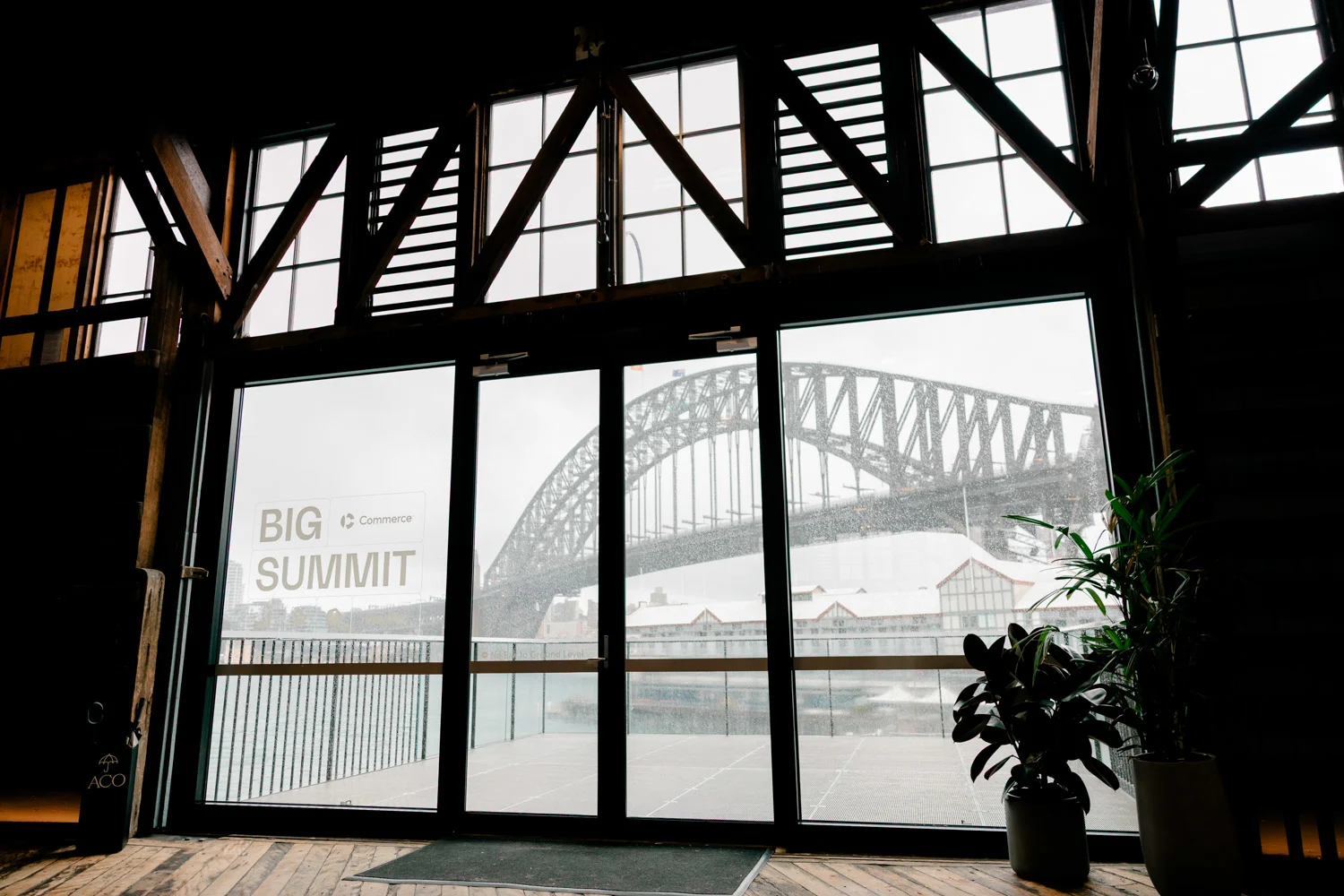
BigSummit 2025 session recaps
CEO Welcome and Vision.
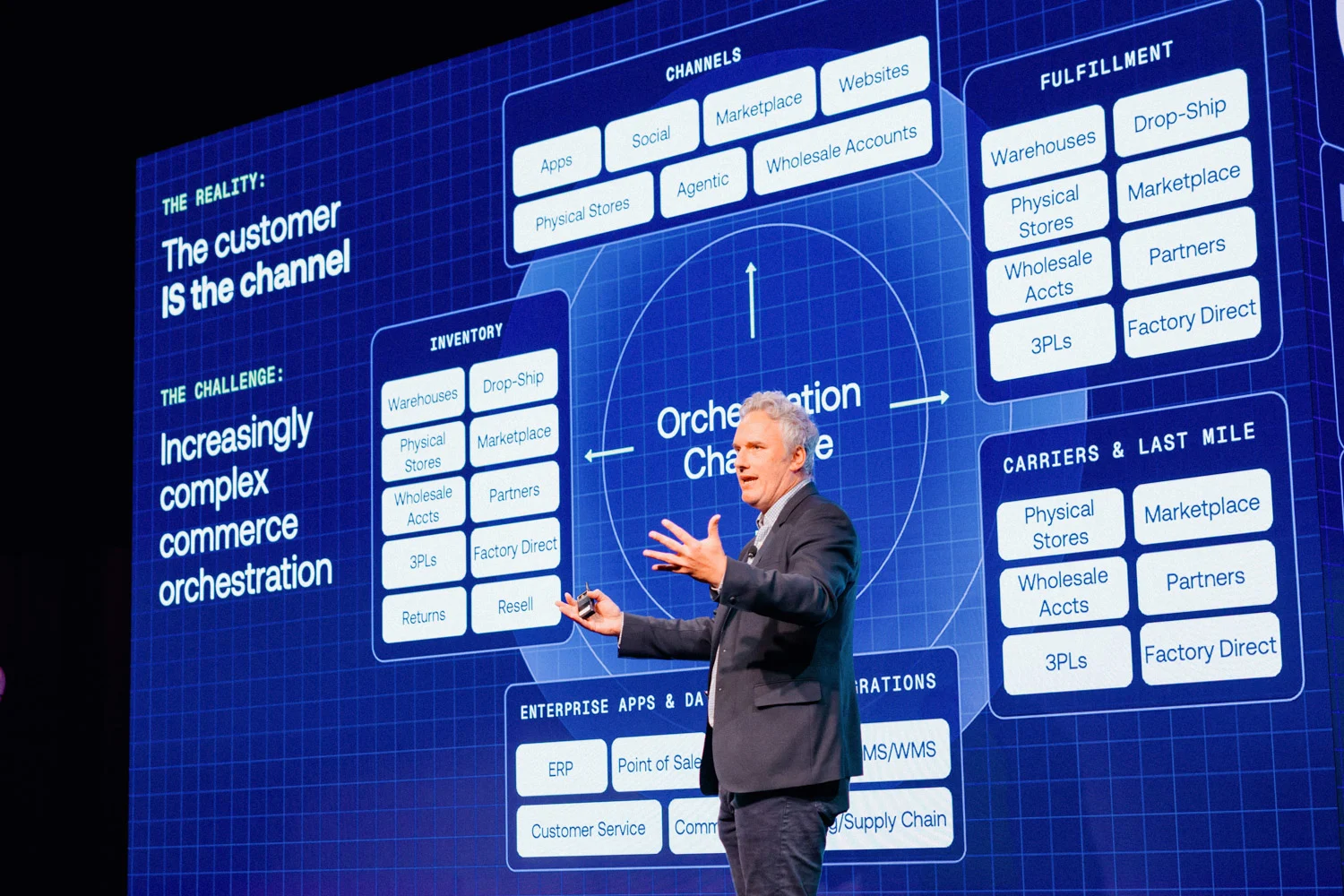
When Travis Hess, CEO of Commerce, opened this year’s BigSummit APAC, his message was clear. The future of commerce is already here.
He shared how Commerce has unified BigCommerce, Feedonomics, and Makeswift into one brand built to power the AI era. The goal is to give retailers and brands the flexibility and intelligence they need to thrive as discovery moves beyond websites into AI-driven platforms.
Travis cautioned that many businesses are still designing for humans while discovery is already happening through machines. Messy product data and unstructured catalogues are keeping too many brands invisible.
“AI is not hype. It's a necessity. If your catalogues isn’t structured for machines, you’ll be invisible,” shared Travis.
To help brands stay ahead, Travis outlined Commerce’s four key focus areas:
Feedonomics and FeedAI: Structuring product data for both humans and AI.
Makeswift and Catalyst: Giving marketers the freedom to make fast and flexible updates.
Open ecosystem: Integrating with major payment providers, AI tools, and partners without lock-in.
Phased AI strategy: Evolving from discovery to shopping to full data orchestration.
Commerce is built for what’s next, providing an open and adaptable foundation for the future of AI-driven commerce.
Listen to the full session recording.
Powering What’s Next: Our Product Strategy and Roadmap.
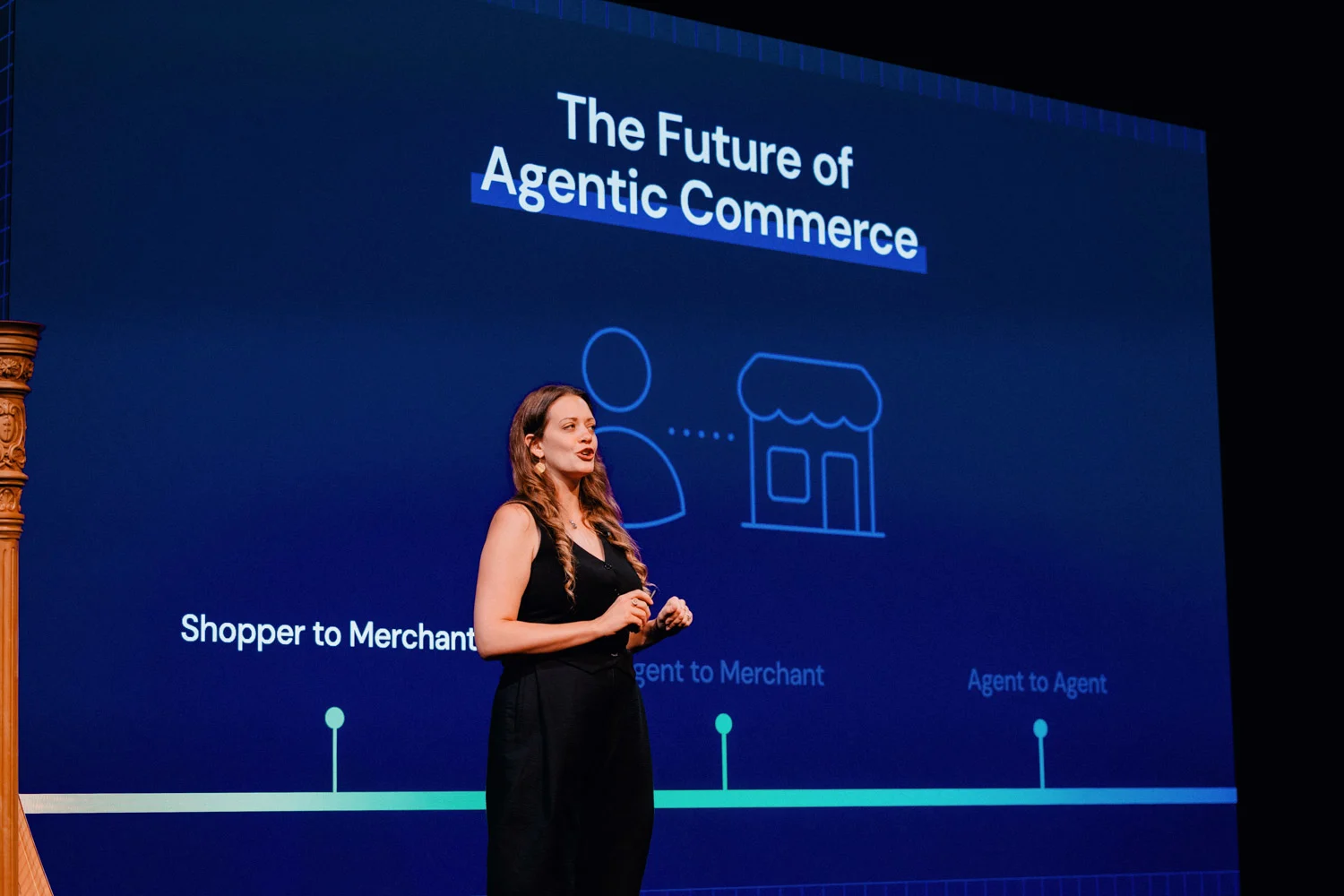
The Commerce product team took the stage to share how they are solving the real challenges merchants face every day. From messy product data to slow site updates and complex B2B workflows, the focus was clear: make commerce faster, smarter, and ready for AI.
The session featured insights from Commerce’s Vipul Shah, Chief Product Officer, Sharon Gee, SVP of Product for AI, Jordan Sim, VP of Product Management, Lance Owide, General Manager of B2B, and Lindsay Trinkle, Director of Commercial Offerings. Together, they outlined how the team is removing the barriers that slow retailers down.
“We’re done celebrating tools that take months to deploy. Marketers need to move at campaign speed, not developer speed,” remarked Sharon.
To bring that vision to life, the team showcased key innovations driving Commerce forward:
FeedAI (Feedonomics): Automates the cleanup and enrichment of product data so catalogues are accurate, structured, and discoverable by both humans and AI.
B2B enhancements: Multi-entity hierarchies and CPQ workflows that let large distributors deliver consumer-grade experiences without manual workarounds.
Catalyst framework: A composable storefront foundation that helps marketing teams launch quickly while keeping creative flexibility.
Merchant Control Panel and AI assistants: Simplifies admin tasks like pricing, tagging, and reporting so teams can focus on strategy and growth.
The takeaway was simple. Retailers no longer need to choose between speed and flexibility. With AI-ready tools and a composable foundation, Commerce empowers brands to move faster and smarter.
Listen to the full session recording.
Fastlane to Conversion: How PayPal and BigCommerce are Revolutionising Checkout in Australia.
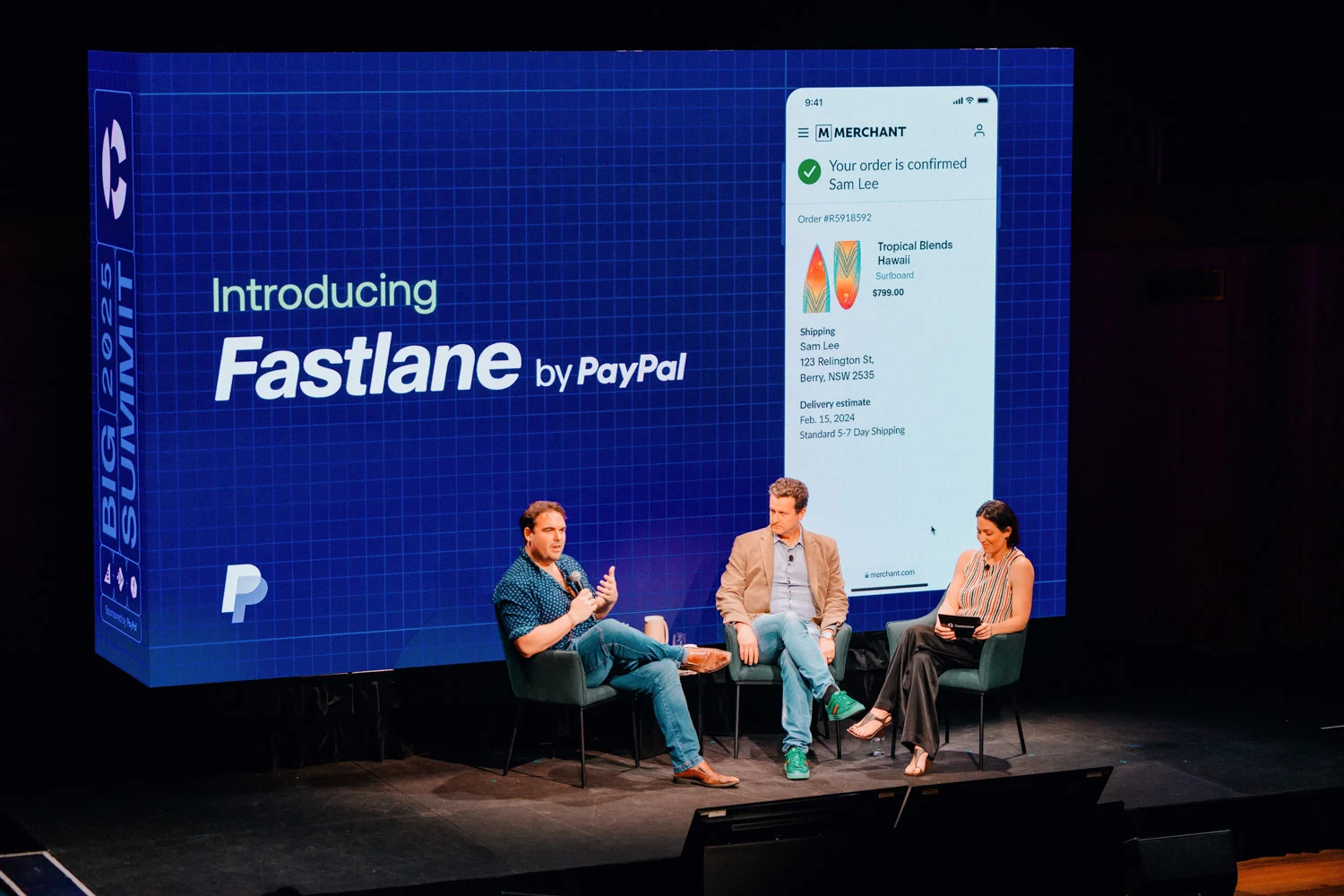
This session featured Gareth Williams, Chief Technology Officer at Adore Beauty, and Simon Banks, Managing Director at PayPal Australia, who revealed how improving checkout turned into a major driver of conversion and loyalty.
Both leaders admitted that checkout had long been treated as plumbing rather than part of the brand experience. That oversight was costing real money.
“Payments aren’t back-office anymore. They’re front-and-center customer experience,” said Simon.
Adore Beauty identified checkout friction as a major cause of mobile drop-off. Shoppers expected the same quick convenience they enjoy with ride-share and delivery apps, and when ecommerce lagged behind, it broke trust.
To fix the problem, Adore Beauty introduced PayPal Fastlane, a one-tap login and auto-filled checkout flow that simplified the entire process. The team also began treating checkout design as a growth lever rather than a technical step.
The results were clear:
Lower mobile abandonment.
Higher conversion rates.
Customers describe the experience as “seamless.”
“Your checkout is your brand. Every click you remove is loyalty earned,” shared Gareth.
The lesson was simple. Checkout is not the end of the journey — it is a key brand moment that can turn one purchase into long-term loyalty.
Listen to the full session recording.
Retail Reality Check: How Digital Leaders Are Navigating Growth, Experience, and Innovation in 2025.
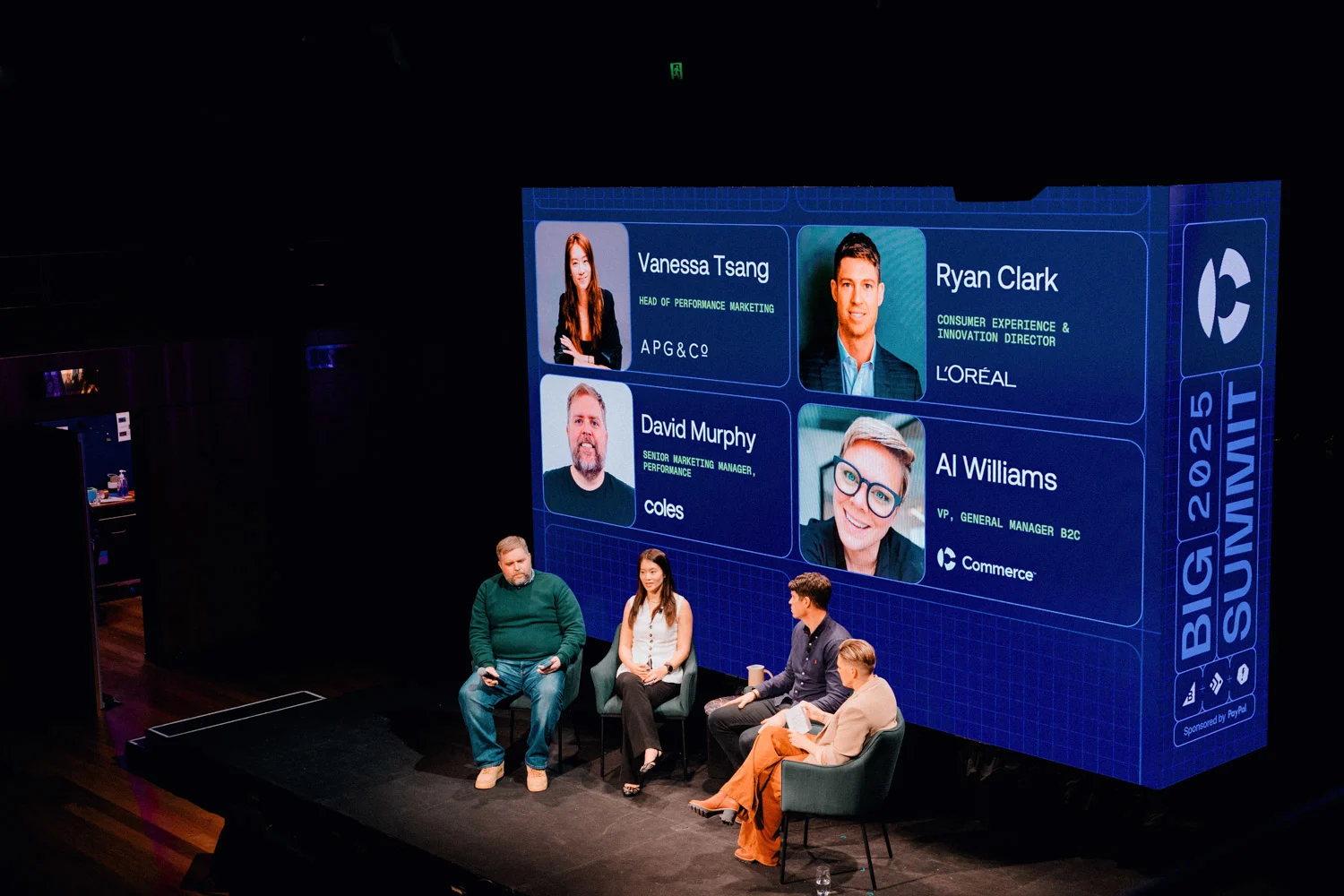
In this panel, David Murphy, Performance Marketing Manager at Coles, Vanessa Tsang, Head of Performance Marketing at APG & Co., and Ryan Clark, Consumer Experience and Innovation Director at L’Oréal ANZ, discussed how retail leaders are balancing growth, experience, and innovation in a market defined by rapid change.
Each brand brought a candid perspective on what it takes to stay relevant:
Coles acknowledged that relying on discounts can keep baskets moving but erodes margin and long-term loyalty. “We’re addicted to discounts,” admitted David. The brand is shifting focus toward value-driven loyalty programs that reward frequency over price sensitivity.
APG & Co. shared the importance of speed. Legacy systems have often delayed promotions and campaigns until they miss the cultural moment. Vanessa explained that investing in in-house digital capabilities has cut campaign lead times from weeks to days.
L’Oréal explored the fine line between personalisation and privacy. Ryan described how the brand is using AI to deliver personalised recommendations and content while maintaining strong guardrails to protect customer trust.
“It’s no longer just about promotions. The experience you deliver is what keeps customers loyal,” said David.
Sustainable growth depends on trust, personalisation, and speed. The brands winning in 2025 are those brave enough to invest in experience, not just discounts.
Listen to the full session recording.
Experiential Commerce: How the Best Brands Lead with UX.
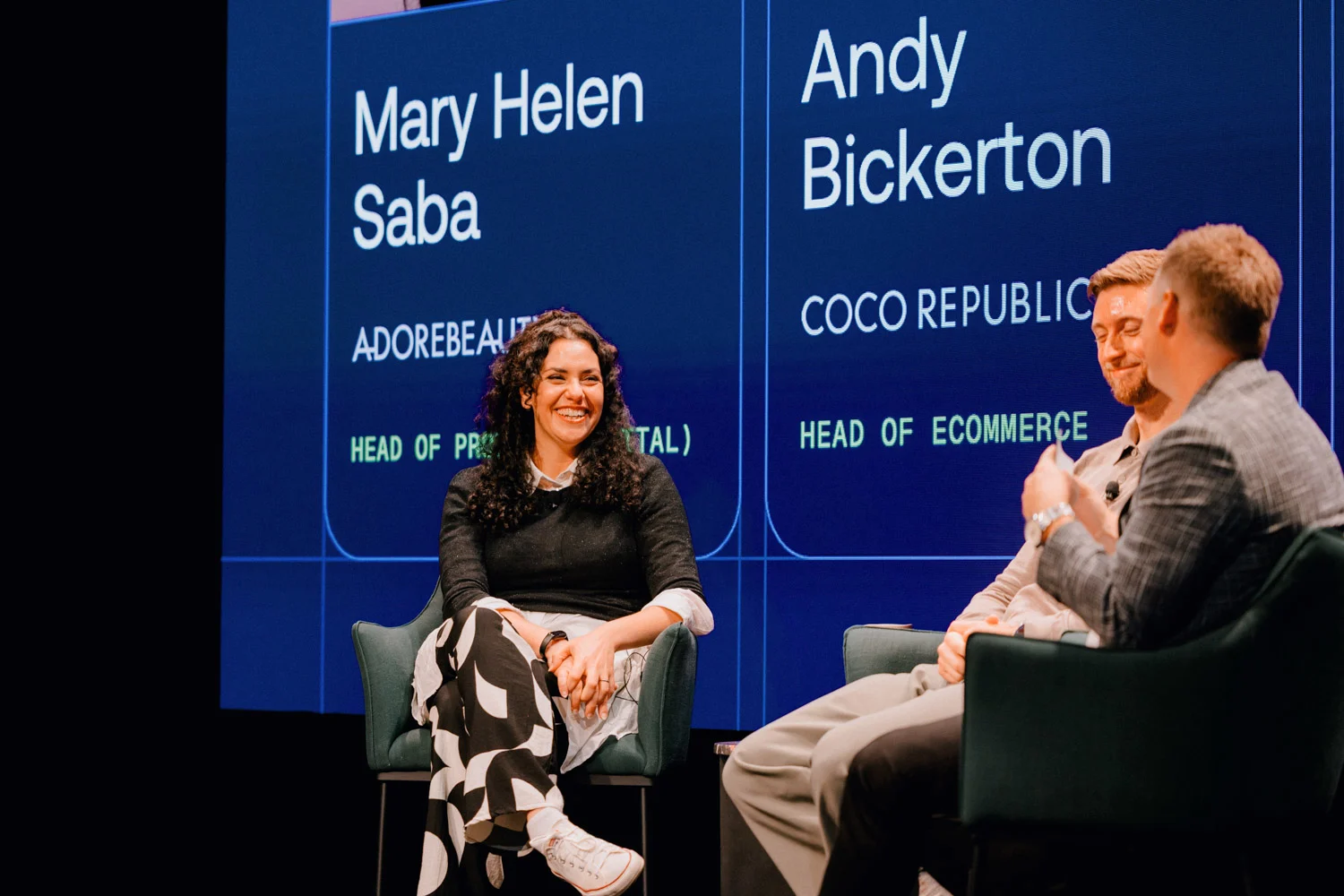
In this session, Mary Helen Saba, Digital Head of Product at Adore Beauty, and Andy Bickerton, Head of Ecommerce at Coco Republic, explored how leading brands are reshaping their digital experiences to strengthen customer loyalty and brand equity.
Both agreed on one truth: customers do not separate brand from experience. If the online journey feels clunky, the entire brand promise is at risk.
Coco Republic realised that while its showrooms set a high bar for luxury, the website was not keeping pace. The experience felt transactional rather than aspirational. The team invested in design-led UX, blending visual storytelling and guided shopping to bring the elegance of its stores online.
Adore Beauty found that even small frictions could impact loyalty. The brand introduced ongoing UX testing and deeper personalisation, ensuring every improvement — faster load times, smarter recommendations, simpler navigation — added measurable value.
“Loyalty is earned in the details. A smoother experience is a revenue driver,” shared Mary.
For both brands, elevating UX was not just about aesthetics. It became a strategic growth driver that connected design, performance, and trust.
Listen to the full session recording.
Platformed for Growth: How Laser Clinics Delivered Scalable CX with Substance and Style.
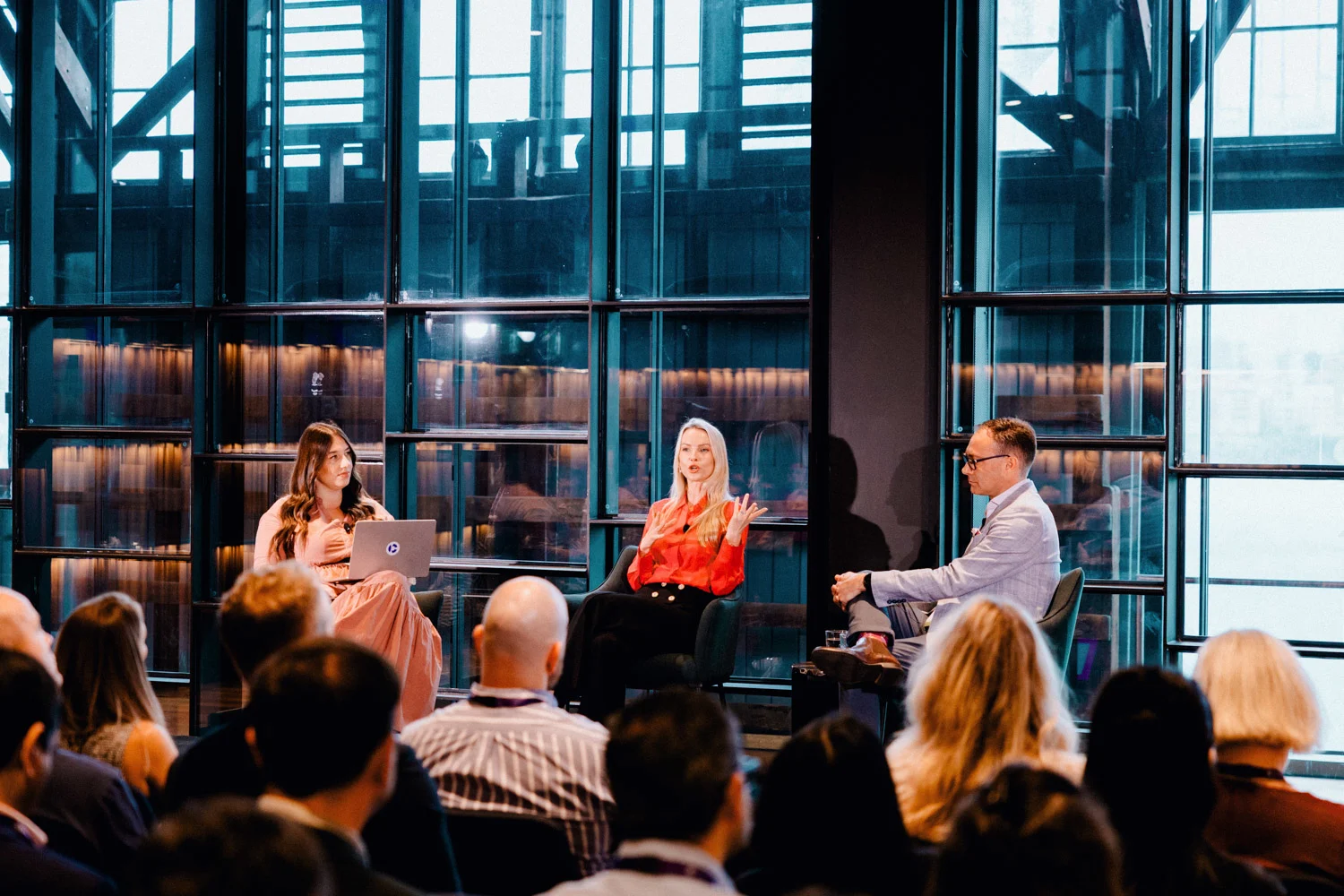
In this session, Zoe Devine, Head of Digital CX at Laser Clinics Australia, and Jonathan Day, Founder and Managing Director at Aligent, shared how Laser Clinics reimagined its digital experience to deliver a more connected and scalable customer journey.
Before the rebuild, buying and booking lived in separate systems. Customers frequently dropped off between steps, and franchise operations faced complex compliance requirements across multiple regions.
“Franchise businesses don’t have the luxury of simple ecommerce. If booking and buying aren’t connected, the customer disappears,” shared Zoe.
Laser Clinics partnered with Aligent to design a unified platform built on BigCommerce and Catalyst that merged commerce and scheduling into one seamless flow.
“Catalyst gave us the flexibility to solve complexity without breaking speed,” said Jonathan.
Key improvements included:
Connecting buying and booking so customers could purchase a treatment and immediately schedule an appointment.
Conducting extensive customer and franchisee research to ensure the experience worked for both audiences.
Embedding compliance directly into the digital architecture to support local regulations without slowing operations.
The results spoke for themselves. Drop-off rates declined, franchisees gained better visibility, and customers enjoyed a consistent, compliant experience at every touchpoint.
Laser Clinics showed that with the right platform, ecommerce can power more than transactions. It can unite systems, improve service, and strengthen brand trust across the entire journey.
Listen to the full session recording.
Scaling for Tomorrow: B2B Strategies for the Modern Buyer.
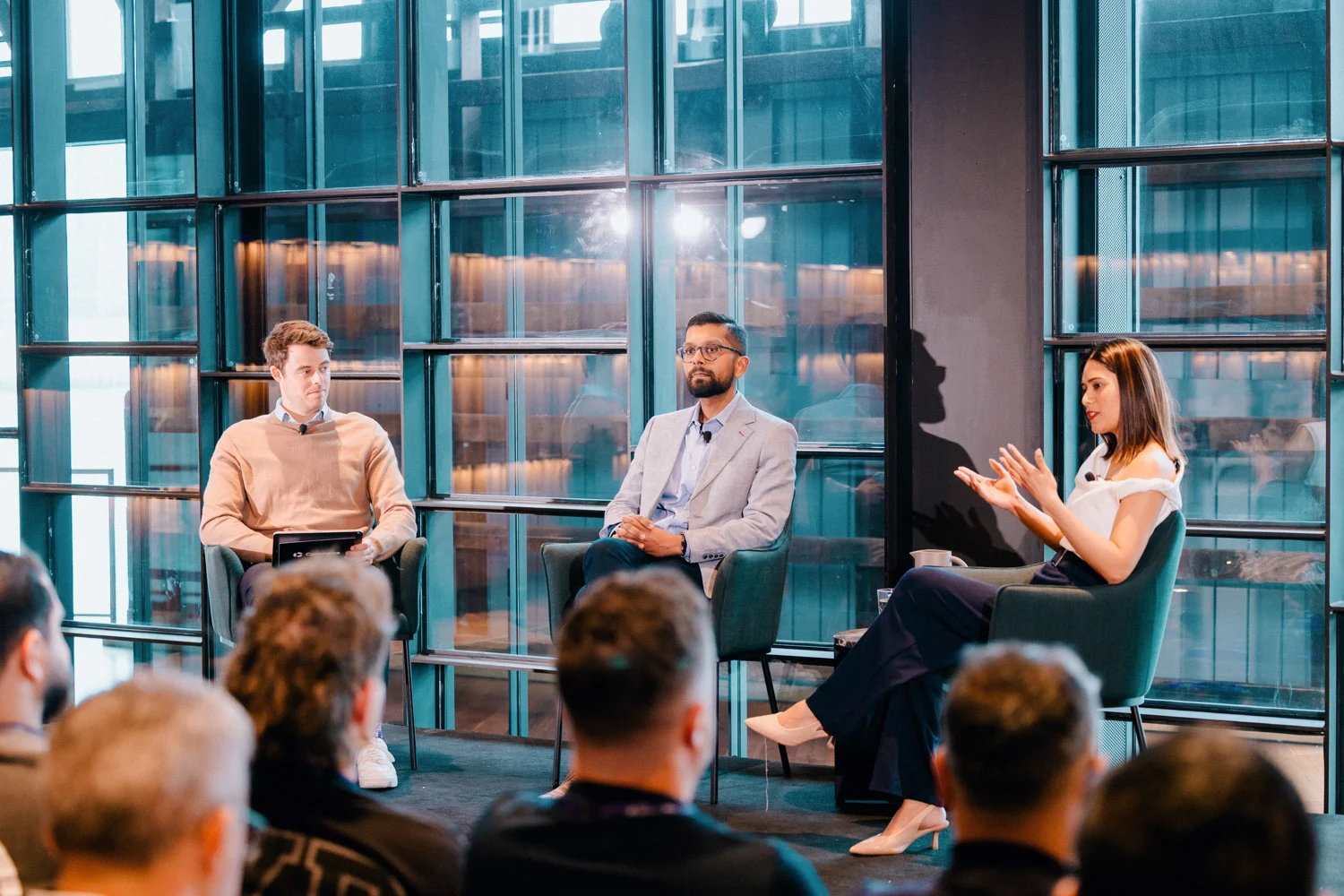
In this session, Vymal Jhajeeah, Head of Information Technology at Glen Dimplex, and Shruti Rodrigues, Digital Product Owner at Sime Motors, discussed how B2B businesses are evolving to meet the expectations of the modern buyer.
Both leaders agreed that B2B buyers now think and act like consumers. They want real-time data, self-service tools, and transparent information that builds trust.
Glen Dimplex addressed these expectations by introducing real-time ETA visibility in its customer portals. Independent retailers can now see exactly when stock will arrive, removing the need for manual check-ins and endless follow-ups.
Sime Motors revealed that AI is already reshaping B2B discovery. The team found buyers using ChatGPT and Perplexity to search for truck parts, prompting the creation of VIN-personalised fleet portals that give customers detailed part information and streamlined ordering.
“We were shocked to see conversions from ChatGPT already,” said Shruti Rodrigues.
The session made one thing clear: the line between B2B and B2C is fading fast. Buyers expect simplicity, personalisation, and speed, and brands that deliver on those expectations will earn both trust and market share.
Listen to the full session recording.
Smarter Performance: How Agencies, Brands and Channels Are Using AI to Optimise Retail Marketing.
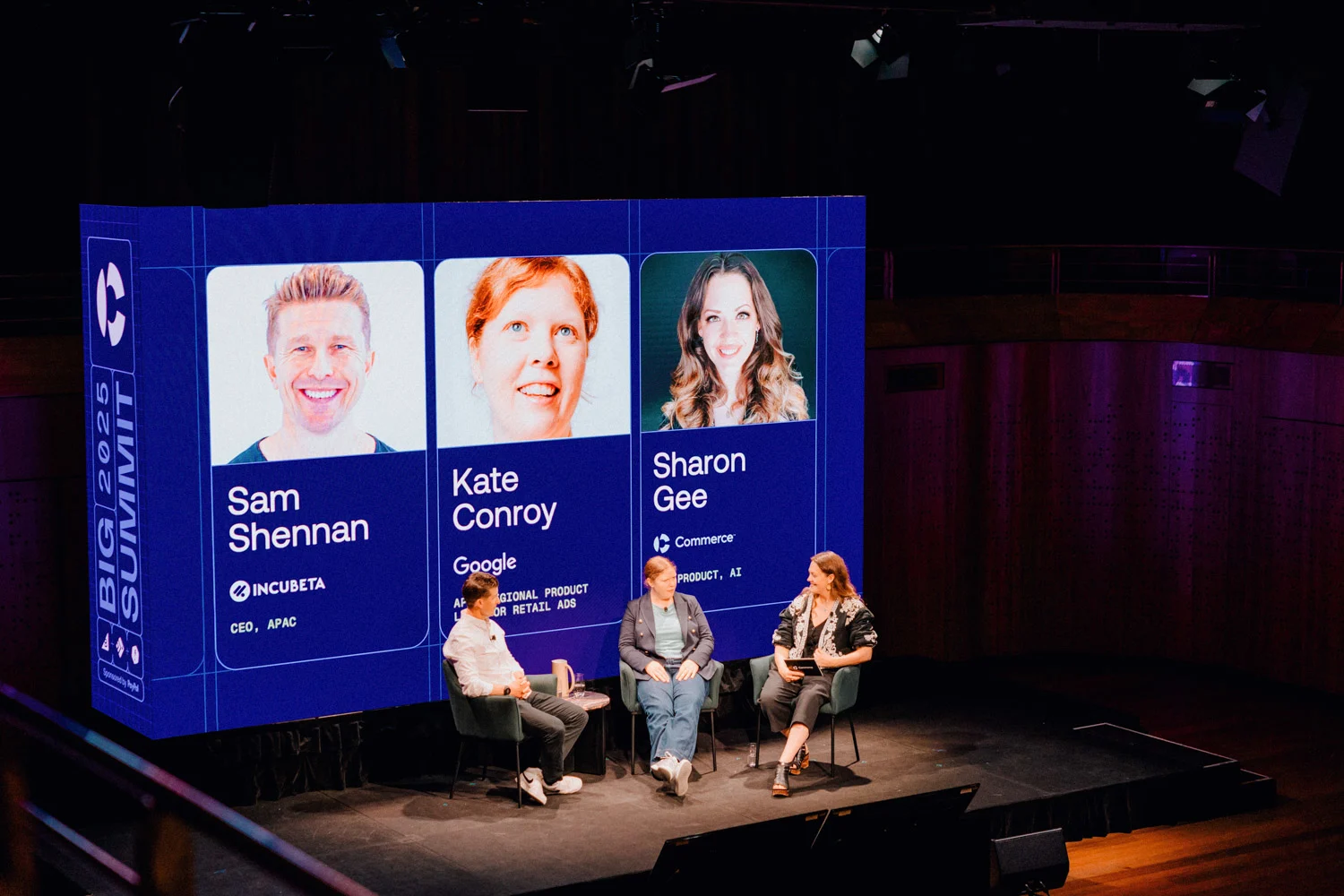
In this session, Sam Shennan, CEO of APAC at Incubeta, and Kate Conroy, Regional Product Lead for Retail at Google Asia Pacific, shared how AI is transforming performance marketing from manual management into intelligent automation.
Both agreed that traditional digital marketing has reached its limits. Signal loss, stricter privacy policies, and slow campaign adjustments are making it harder for retailers to reach customers effectively.
Kate explained how Google is helping brands adapt through AI-powered campaigns that use real-time data to predict shopper intent and optimise performance automatically.
“Without structured data, even the smartest AI campaigns can’t find your products,” she noted.
Incubeta showcased real examples where AI helped retailers cut wasted ad spend and boost return on ad spend by focusing budgets on high-intent shoppers.
“AI isn’t just about automating campaigns. It’s about finding revenue you’re currently leaving on the table,” explained Sam.
Commerce reinforced this message, showing how structured product data fuels AI accuracy across advertising platforms and channels.
The conversation left one point clear. The most successful marketers will combine the creativity of people with the precision of AI, letting automation handle optimisation so teams can focus on strategy, storytelling, and growth.
Listen to the full session recording.
Selling B2B Smarter: How to Drive Revenue Growth and Expand Share of Wallet.
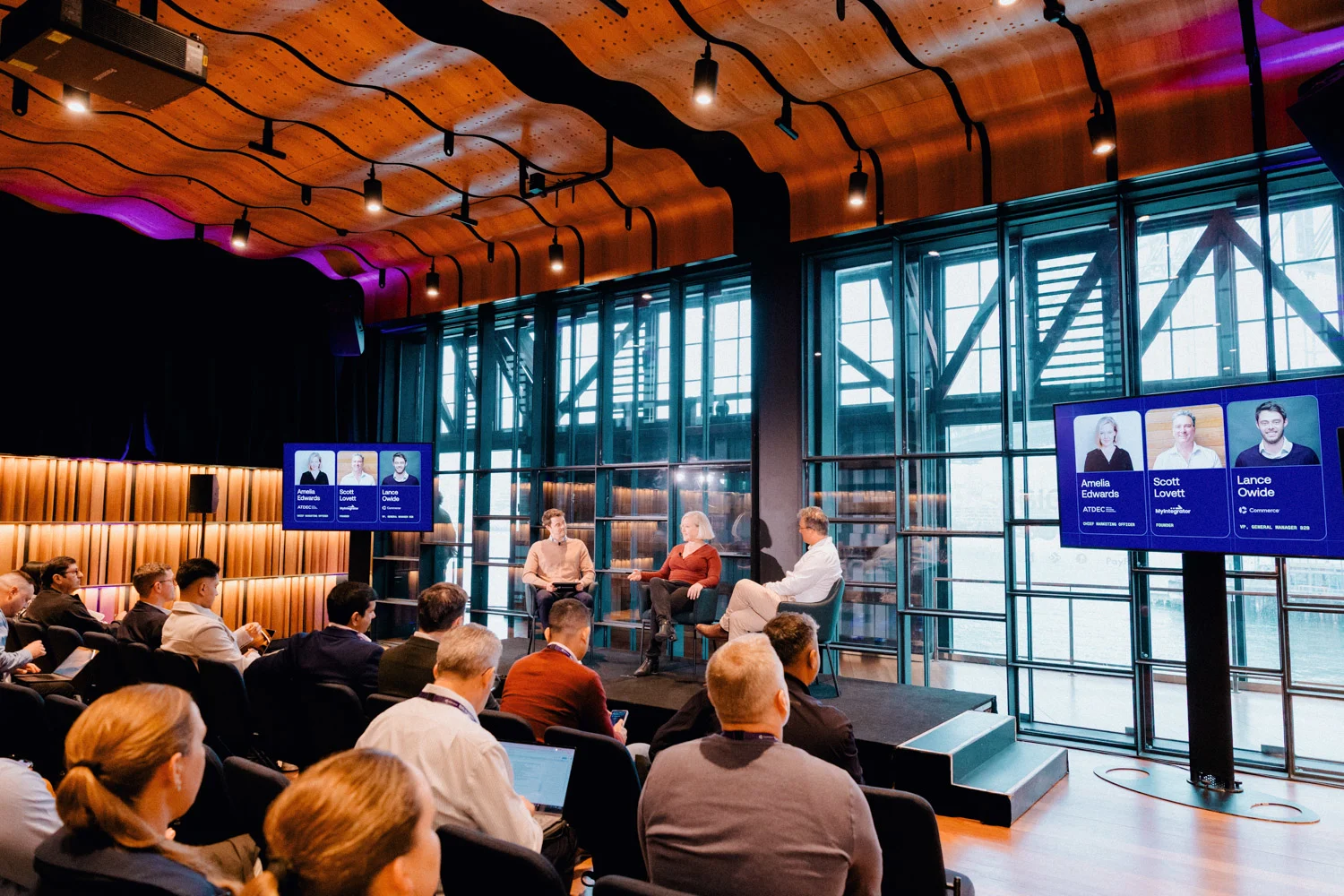
In this session, Amelia Edwards, Chief Marketing Officer at ATDEC, and Scott Lovett, Founder of MyIntegrator, shared how B2B brands can modernise their operations to unlock growth and resilience.
The conversation started with a hard truth. ATDEC had faced a security scare that exposed just how fragile its legacy systems had become. With multiple ERPs across regions, complex pricing structures, and manual catalogue management, the business was stuck in maintenance mode.
Amelia explained that the breach was the wake-up call the company needed. It finally aligned executives on the importance of replatforming and investing in scalable, secure infrastructure.
“We didn’t choose to replatform because it was trendy. We did it because we couldn’t afford another sleepless night,” shared Amelia.
Partnering with MyIntegrator, ATDEC migrated to BigCommerce, consolidating its operations into a single store that supports multiple channels and regions. The result is a connected system where:
Data flows consistently across all regions.
Bundle pricing updates automatically.
Multi-currency selling happens seamlessly.
Scott shared that the change was about more than solving technical issues. It was about building a stronger foundation for growth.
“Complexity doesn’t have to mean fragility. One store and multiple channels solve both,” said Scott.
The transformation freed teams to focus on strategy instead of maintenance. For B2B brands, the message was clear: do not wait for a crisis to modernise. Act early and let technology drive growth, not fear.
Listen to the full session recording.
From Insight to Action: What Retailers Need to Know in 2025.
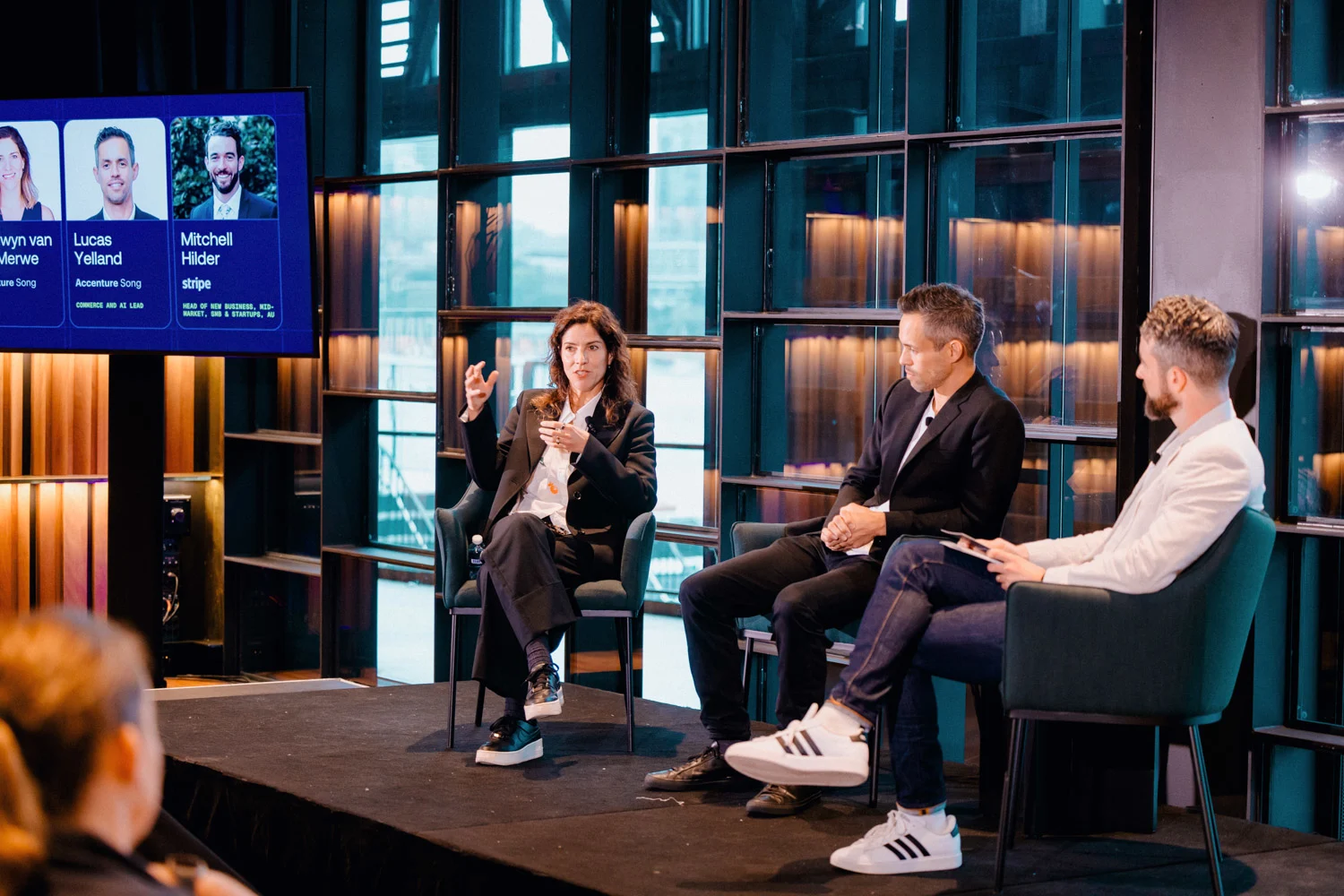
In this session, Bronwyn van der Merwe, ANZ Lead at Accenture Song, Lucas Yelland, Commerce and Service x Data and AI Lead ANZ at Accenture Song, and Mitchell Hilder, Head of New Business for Mid-Market, SMB, and Startups in Australia at Stripe, discussed how shifting consumer expectations are shaping retail strategies in 2025.
The panelists described a consumer base that is cautious, value-driven, and more discerning than ever. Rising living costs and digital fatigue have made Australians more selective about where they spend their money and which brands they trust.
Bronwyn explained that today’s shoppers are looking for brands that feel fair, authentic, and aligned with their values.
“Australians are the most financially anxious consumers we’ve ever researched. They demand value and authenticity,” she said.
Lucas added that loyalty programs are evolving. Consumers no longer chase endless points. Instead, they stick with programs that deliver real benefits like savings, flexibility, and relevance.
Mitchell emphasised that checkout remains one of the biggest opportunities for improvement. Stripe data shows that most Australian retailers are only partially optimised, leaving money on the table.
“Your payments flow is your growth engine. Ignore it, and you’re leaving money on the table,” said Mitchell.
Together, the group outlined a clear formula for winning consumer trust in 2025:
Keep experiences simple, honest, and transparent.
Deliver tangible value over gimmicks.
Treat checkout and payments as growth levers, not back-end systems.
Retailers that meet customers with authenticity, ease, and efficiency will earn both trust and long-term loyalty.
Listen to the full session recording.
Change or Die: The AI-First Imperative in Ecommerce Transformation.
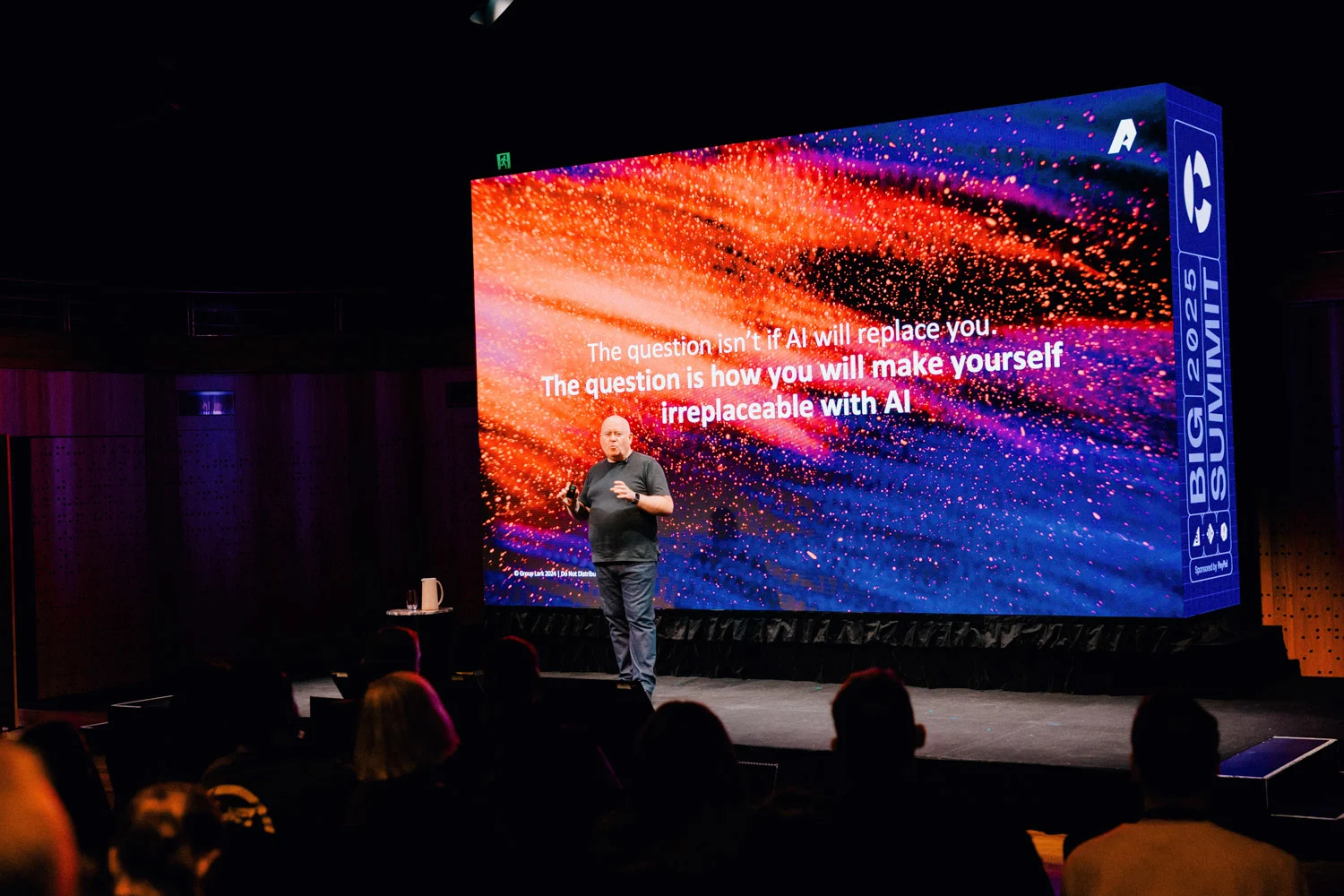
In his keynote, Andy Lark, CEO of Group Lark, delivered a powerful call to action for retailers navigating the AI revolution.
Andy reminded the audience that AI is not a trend but a tidal wave already reshaping how consumers discover, compare, and buy. Too many businesses, he warned, are still focused on incremental improvements while the industry is moving toward exponential change.
“AI isn’t a tool, it’s the new battleground. And you don’t win battlegrounds by waiting,” said Andy Lark.
He cautioned that overreliance on discounting is eroding margins without building long-term loyalty, and that organisational inertia is holding many brands back. To compete, companies must move faster than they think they can — testing, learning, and iterating in real time.
Andy outlined three priorities for retailers ready to embrace an AI-first future:
Make your data machine-ready: Structured catalogues, clean attributes, and connected APIs are essential for visibility in AI-driven discovery.
Act at market speed: Perfect plans are the enemy of progress. Experimentation and agility drive growth.
Lead with storytelling: Product and price can be replicated, but emotional connection and brand purpose cannot.
Incremental change is no longer enough. The brands that thrive will be the ones that embrace AI as a catalyst for transformation, using it to create faster, smarter, and more human experiences.
Listen to the full session recording.
The final word
2025 BigSummit APAC made one thing clear: the future of commerce is already here. Across every session, leaders shared how they are transforming data, experiences, and technology to meet customers where they are and where they are headed.
As Travis Hess reminded attendees, “This is not 2030. The disruption is already here. The question is whether you’re ready.”
The next era of growth will belong to the brands that embrace change, experiment fearlessly, and build experiences that feel human, no matter how advanced the technology becomes.
Want to dive deeper into the insights and strategies shared by industry leaders? Listen to the 2025 BigSummit APAC session recordings to hear the full discussions firsthand.


